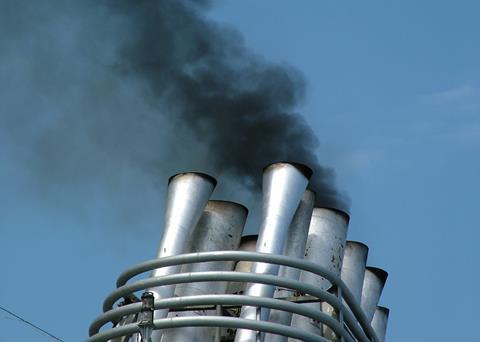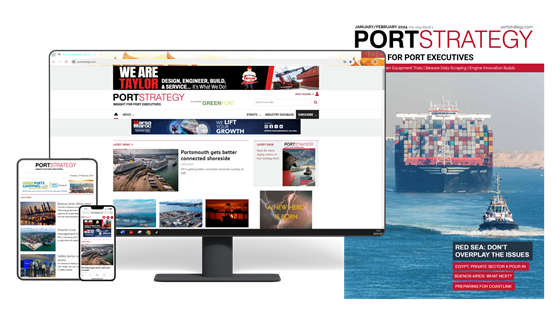Ports are ideally placed to advance cleaner, more profitable shipping, writes Victoria Stulgis, Senior Associate Shipping, Carbon War Room.

With around 5,000 ports servicing over 90,000 ships around the globe, ports play a vital role in driving the shipping industry towards a more sustainable future. As the maritime industry increasingly integrates environmental responsibility into its day-to-day operations, ports are ideally positioned to steer the industry towards a lower-carbon trajectory.
Led by ports on the US West Coast, there are multiple existing programmes that help to deliver greener port environments. One key driver has been the emergence of the incentive scheme, developed to encourage fresh thinking and create behavioural change from those stakeholders using port facilities to create more environmentally-friendly port environs.
With shipping representing a significant polluter of SOx, NOx and PM, unsurprisingly pioneering ports have focused on reducing pollutants and improving the local air quality, and in so doing have improved human health. Incentive schemes that reward ‘cleaner vessels’ entering a port’s waters have realised success in mitigating associated health hazards.
However, there remains a significant opportunity for ports to pursue carbon mitigation approaches that are profitable for ships. In doing so, ports can contribute towards developing a low carbon economy and provide a compelling value proposition for their most important customers – shipowners, operators and charterers. For example, the US Ports of Los Angeles and New York and New Jersey have implemented voluntary speed reduction programmes that serve to address air pollutants and CO2, in some cases resulting in a 50% reduction in fuel burned from ships within 20 to 40 miles of the port.
As a result of such schemes, operators such as Maersk Line and Evergreen have benefitted from discounts on harbour dues, as well as reduced fuel costs. In addition, 2014 saw Prince Rupert Port Authority and Port Metro Vancouver become the first ports in the world to offer incentives to the most efficient vessels calling at their ports, based on RightShip’s GHG Emissions Rating. Last year, the ports awarded over US$1.1 million in discounts to more efficient vessels. While many of these programmes come at a cost to ports, other approaches can be cost-neutral such as preferential berthing and priority access.
These ports should be applauded for taking a small but important step in the right direction by delivering significant benefits across the supply chain, encouraging ship-owners to improve the efficiency of their vessels, and incentivising charterers to select more efficient ships. In partnership with maritime risk-management specialist RightShip, we continue to work with ports to develop incentive programmes based on the index, which can be accessed for free on shippingefficiency.org.
In addition to incentive programmes, we are now seeing ports design financial offerings to accelerate the deployment of efficiency technologies. The Maritime Port Authority of Singapore has introduced a pioneering Green Technology Programme, which provides grant funding for Singapore-flagged vessels to retrofit their ships with verified technologies.
As trends like this continue, efficiency technologies will be increasingly favoured both by ports and by fuel payers - helping to build demand all around.
It is clear that ports can play an important leadership role in stewarding the shipping industry towards a lower-emission future and it makes good business sense to provide financial incentives for their major customers. This will benefit communities around the globe and ensure that ports remain competitive as markets increasingly reward businesses that are a driving force for social, environmental and economic benefit.
Port Incentive Programs is just one of the presentations being given at the GreenPort Congress - view the full programme here.
For your opportunity to attend, book your delegate place online today, or for more information regarding GreenPort Cruise and/or Greenport Congress 2015, please contact the Events team on +44 1329 825335 or email congress@greenport.com.






